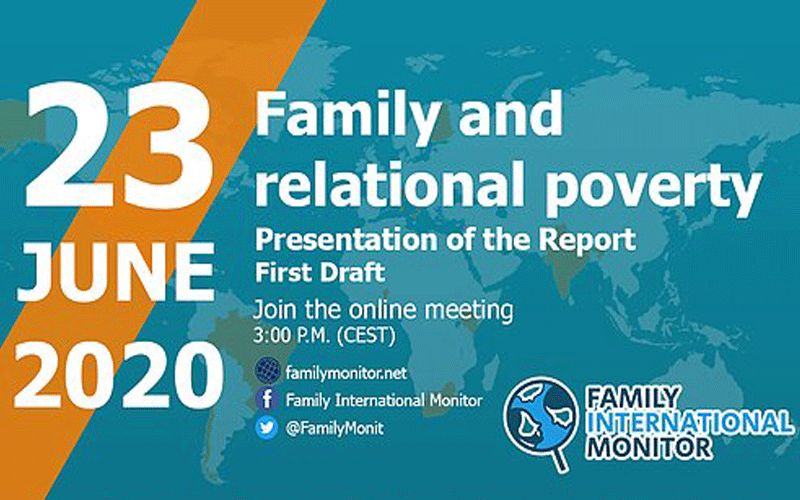Ms. Imelda Diouf from Sekwele Centre for Family Studies in South Africa and Prof. Juan Pablo Faùndez Allier from the Ecclesiastic Faculty of Theology of the Pontifical Catholic University of Valparaiso in Chile also made their presentations in the one-hour meeting.
Mons. Paglia explained that the researchers had chosen to inaugurate their academic work starting from the topic “Family and of relational poverty”, and next year to focus on the relationship between “Family and economic poverty.”
The research project relies on a questionnaire that was drafted by the central team of researchers from the 11 countries who held an expert meeting in Rome, May 2019. Each country was then required to adopt the model to local contexts to produce local results.
The researchers from the three African countries who participated in the study pegged their findings on the challenges that threaten families on the continent.
In Kenya, the researchers express concern over the high number of vulnerable children, with an estimated 8.6 children either orphaned or deprived of adequate material, social and emotional needs. Some 3.6 million rural children are classified as vulnerable where 646,887 are double orphans, 2.6 million are single orphans. Of these, at least 1 million have lost their parents to HIV/ Aids related conditions.
(Story continues below)
It is important that everyone thinks family as a unit to be addressed because “we address the individual, we address women, we address young people, children, the boy child, the girl child but we also need to address the family which gives identity to the individuals,” Dr. Churu said.
According to the Kenyan scholar, everything in society falls apart when family falls apart, underscoring the need for academic institutions to create scope and space for family studies and family education.
Africans live in their authenticity as based in their families, in their small communities, in their villages, neighborhoods and such social groups, according to the Kenyan scholar.
She says that where people are fragmented in their families by religion, different political party affiliations and other systems, the family still has the highest chance of strengthening society.
Unfortunately, economies of African countries do not prioritize family, according to the Dean.
“People leave their families at 5 in the morning because they have to be at work by 8 and by the time they get back home, children are asleep. Families have no life,” she said and added, “They could shorten our working days to save our lives. We could make our work places more family friendly.”
She further said that COVID-19 has taught people that they can work from home and still be very productive while spending time with family.
“We talk about marriages with an emphasis on sacramentalization but never on family life. Sacraments are supposed to help us live our lives; not just have sacraments but we don’t have life,” she said.
She lamented that in Africa, it is becoming increasingly difficult for the child to be part of a family, saying, “The child is never really with family from as early as the mother goes back to work. We prioritize other things but family is never in our way of doing things.”
African renaissance, the awakening of Ubuntu and all other reawakenings that characterize reconstruction in Africa “won’t go far without family,” Dr. Churu said and added, “Suicide rates, depression and other social ills are on the rise because the family has been made very weak. If we can strengthen our families, we shall give a secure foundation to the reconstruction that we are so keen about.”
On her part, Ms. Imelda Diouf from Sekwele Centre for Family Studies in South Africa who also participated in the study said that COVID-19 has provided an opportune time for families to be strengthened.
“If ever there was a moment in post-apartheid South African history, when the role of family should be advocated for, now is that moment,” Ms. Diouf said in an editorial to International Family Monitor.
“Putting on the family lens provides an opportunity to look beyond Covid-19,” she said and added, “South Africa must pay attention to placing families at the centre of development.”








